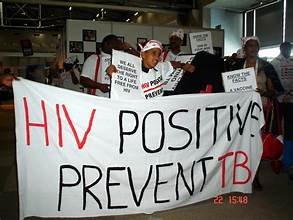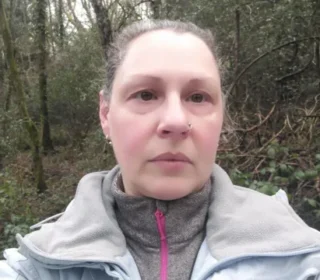A study published Wednesday revealed that twice-yearly injections used for treating AIDS were 100% effective in preventing new infections among women. The research, which involved approximately 5,000 young women and girls in South Africa and Uganda, showed no new infections in those who received the injections. In contrast, about 2% of participants who were given daily preventative pills contracted HIV from infected partners.
Salim Abdool Karim, director of an AIDS research center in Durban, South Africa, and not involved in the study, commented on the findings: “To see this level of protection is stunning.”
The injections, produced by U.S. pharmaceutical company Gilead and marketed as Sunlenca, are currently approved for HIV treatment in the U.S., Canada, Europe, and other regions. However, they are not yet authorized for use in preventing HIV infection. Gilead is awaiting the results of additional testing in men before seeking broader approval for this use.
The study’s results were published in the New England Journal of Medicine and discussed at an AIDS conference in Munich. Gilead funded the study, and some researchers involved are employees of the company. Due to the promising outcomes, the study was concluded early, and all participants were offered the injections, also known as lenacapavir.
While other methods like condoms and daily pills exist to prevent HIV infection, consistent usage remains a significant challenge in Africa. In a recent study, only about 30% of participants taking Gilead’s Truvada or Descovy pills adhered to the regimen, with adherence decreasing over time.
The introduction of a twice-yearly shot is “quite revolutionary news” for patients, according to Thandeka Nkosi, who assisted with Gilead’s research at the Desmond Tutu Health Foundation in Masiphumelele, South Africa. Nkosi noted that the injections offer participants a choice and help eliminate the stigma associated with taking pills for HIV prevention.
While the Sunlenca shots have generated excitement among those fighting to end AIDS, there are concerns about the cost and accessibility. Gilead has not yet set an affordable price for those most in need. The company has indicated plans for a “voluntary licensing program,” which would limit production to a select number of generic manufacturers.
Winnie Byanyima, executive director of the U.N. AIDS agency, stressed that Sunlenca could significantly alter the course of the HIV epidemic. Byanyima’s organization has urged Gilead to share Sunlenca’s patent with a U.N.-backed program that facilitates the production of affordable generic drugs for lower-income countries. Currently, Sunlenca costs over $40,000 annually in the U.S., though patient costs can vary.
Dr. Helen Bygrave of Doctors Without Borders stated that the injections could “reverse the epidemic if made available in the countries with the highest rates of new infections.” She called on Gilead to set an affordable price for all countries.
Gilead’s Dr. Jared Baeten, senior vice president of clinical development, mentioned that discussions with generics manufacturers are underway, acknowledging the urgency of making the drug widely available.
Another HIV prevention shot, Apretude, which is administered every two months, is available in some countries, including parts of Africa, and costs about $180 per patient per year—still unaffordable for many in developing nations.
Byanyima highlighted that the individuals who most need long-lasting protection include women and girls facing domestic violence and gay men in countries where same-sex relationships are criminalized. UNAIDS reports that in 2022, 46% of new HIV infections globally were in women and girls, who are three times more likely than men to contract HIV in Africa.
She compared the potential impact of Sunlenca to the advent of AIDS drugs that transformed HIV from a fatal illness to a manageable chronic condition. She recalled how Nelson Mandela had once suspended drug patents to increase access, reducing costs from about $10,000 per patient per year to around $50.
Olwethu Kemele, a health worker at the Desmond Tutu Health Foundation, believes that the injections could increase HIV prevention efforts and slow the virus’s spread. She noted that young women often hide their pills to avoid questions from boyfriends and family, making adherence challenging.
According to a recent UNAIDS report, fewer people were infected with HIV in 2023 than at any time since the late 1980s. However, despite significant progress in Africa, HIV infections are on the rise in Eastern Europe, Latin America, and the Middle East.
In related research presented at the AIDS conference, Andrew Hill of the University of Liverpool and colleagues suggested that with scaled-up production for 10 million people, the price of Sunlenca could drop to around $40 per treatment. Hill emphasized the importance of making the drug available to health authorities as soon as possible, calling it “about as close as you can get to an HIV vaccine.”

















